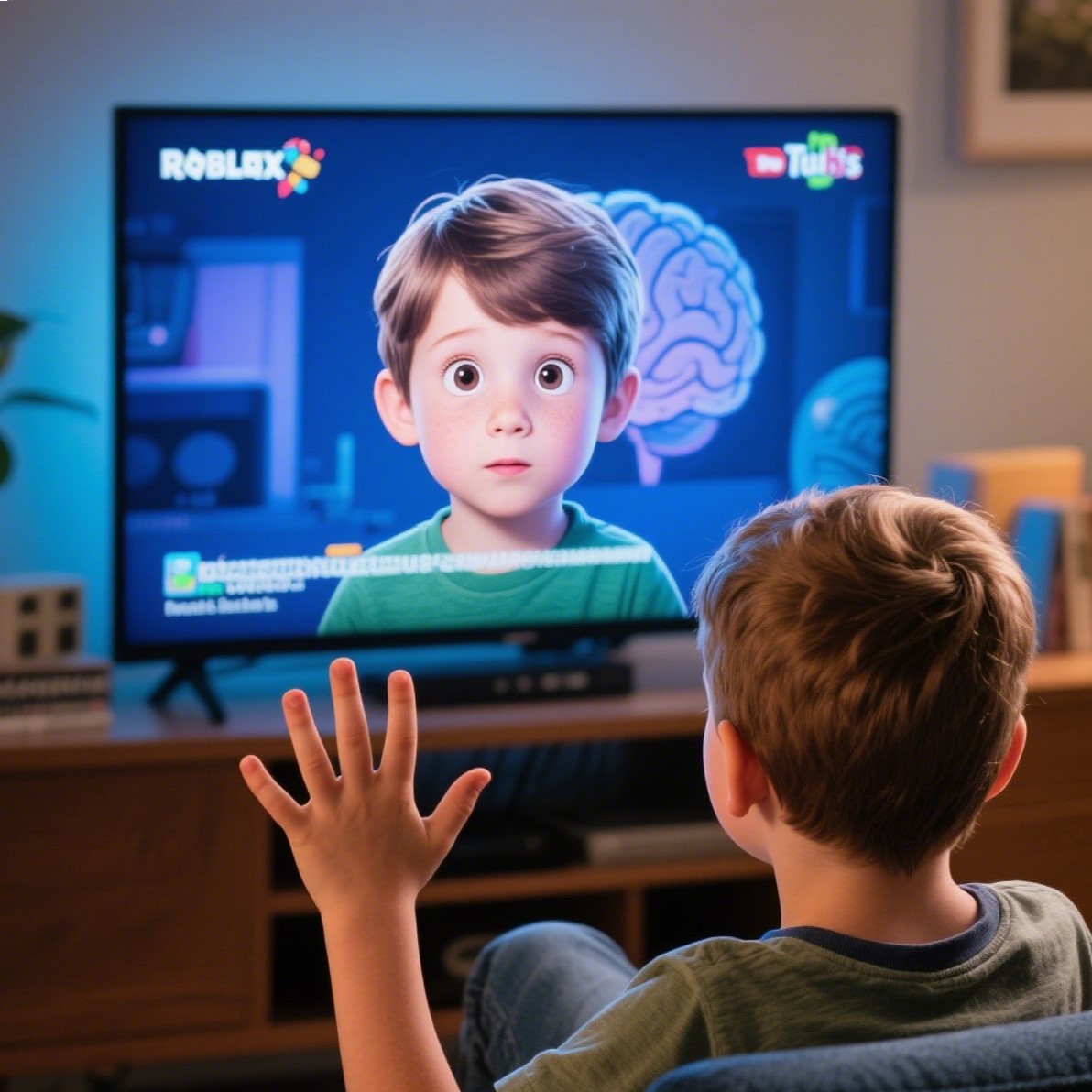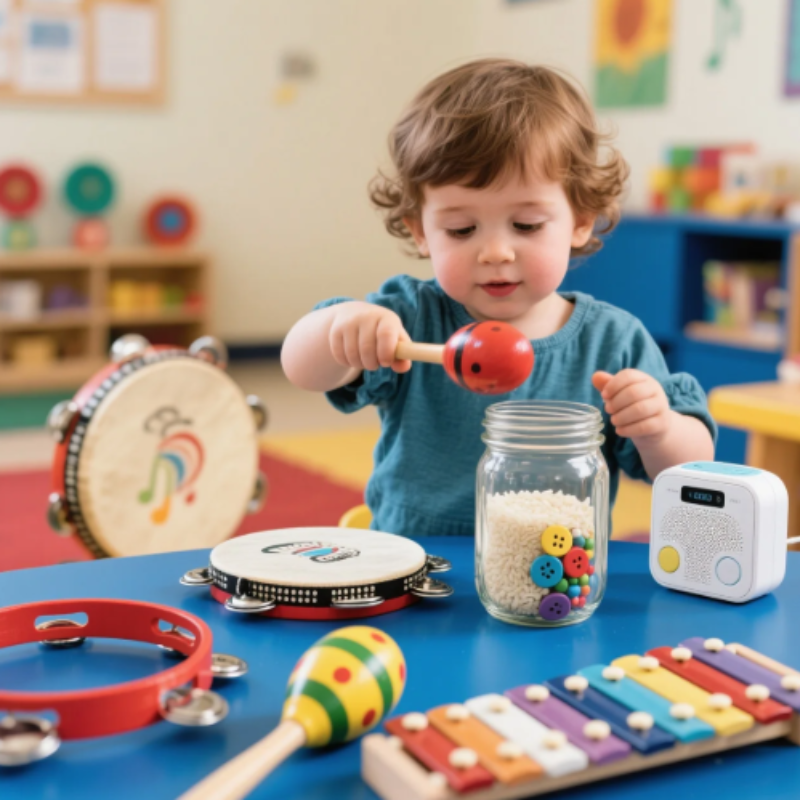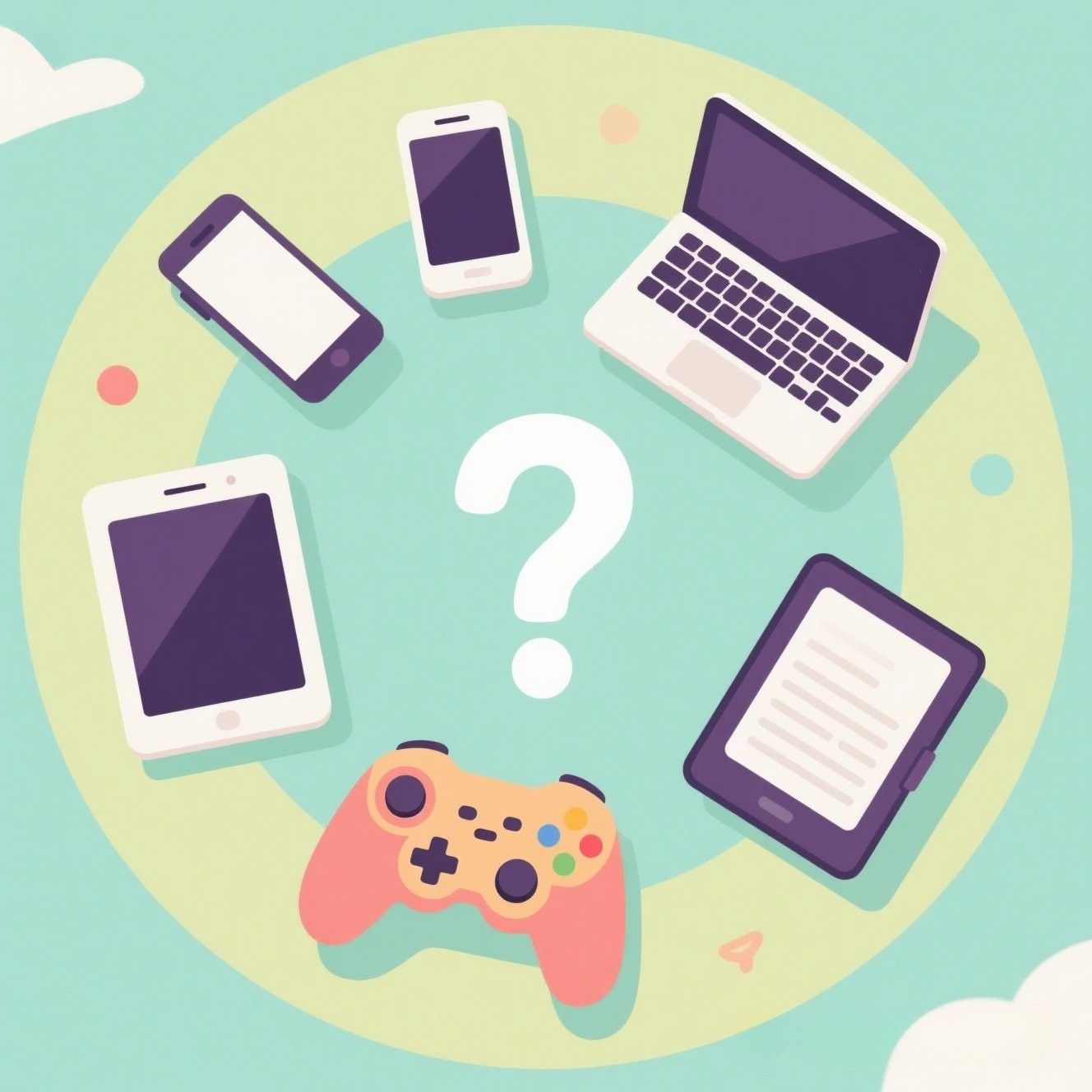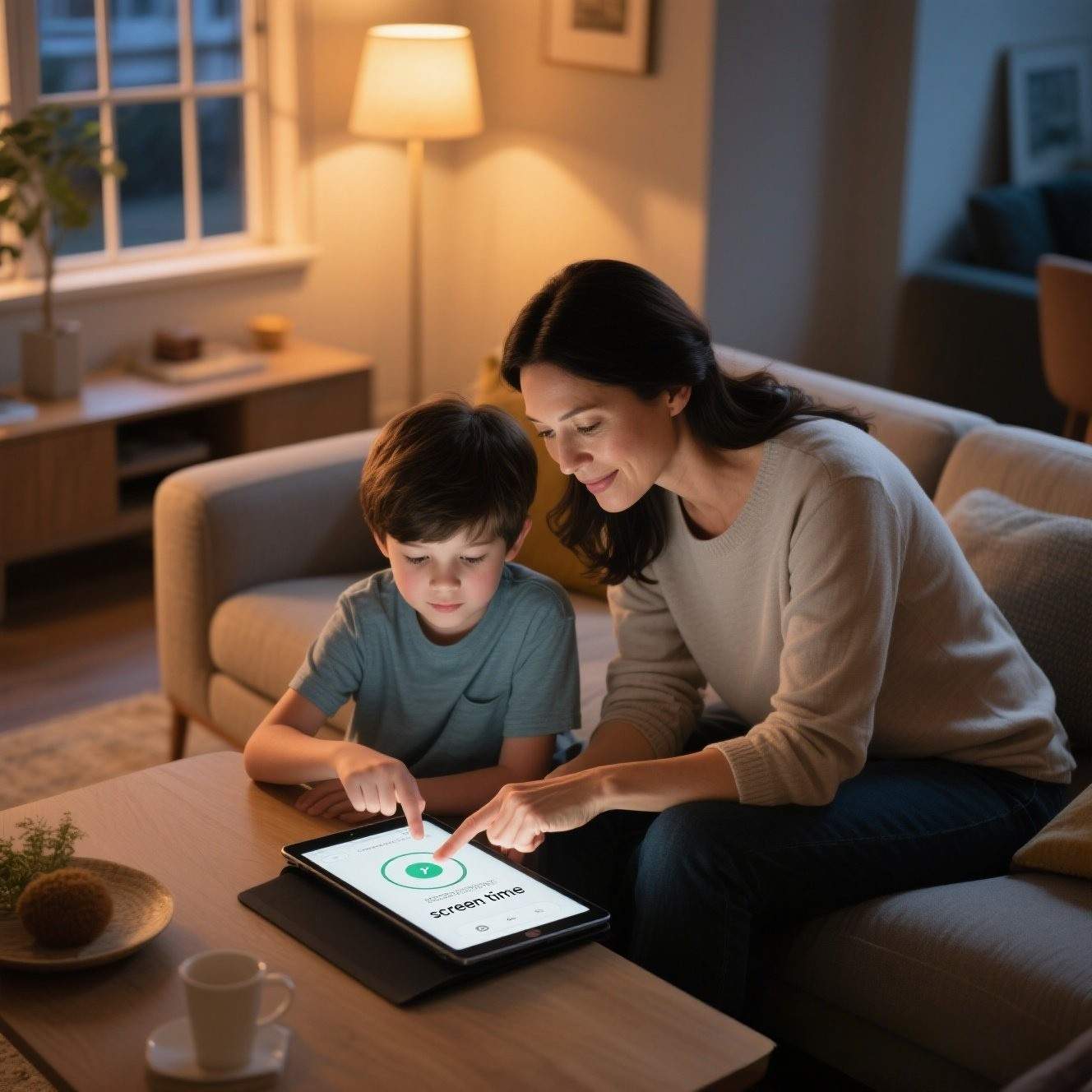We’ve all seen it—that wide-eyed, zombie-like stare as your kid sits frozen in front of a screen. Maybe it’s hour three of YouTube Kids, or the fifth round of Roblox. You call their name. Nothing. You wave your hand. Still nothing. Are they buffering…?
If you’ve ever asked yourself, “Is this normal?”—you’re not alone.
The truth is, excessive screen time isn’t just a parenting headache—it can actually reshape a child’s brain. Yep, like molding Play-Doh. Only this time, the changes aren’t always for the better.
So, what does too much screen time do to a child’s brain? Let’s break it down in plain English—science meets sanity, no panic required.
🧠 1. The Dopamine Dilemma: Screens Hijack the Reward System
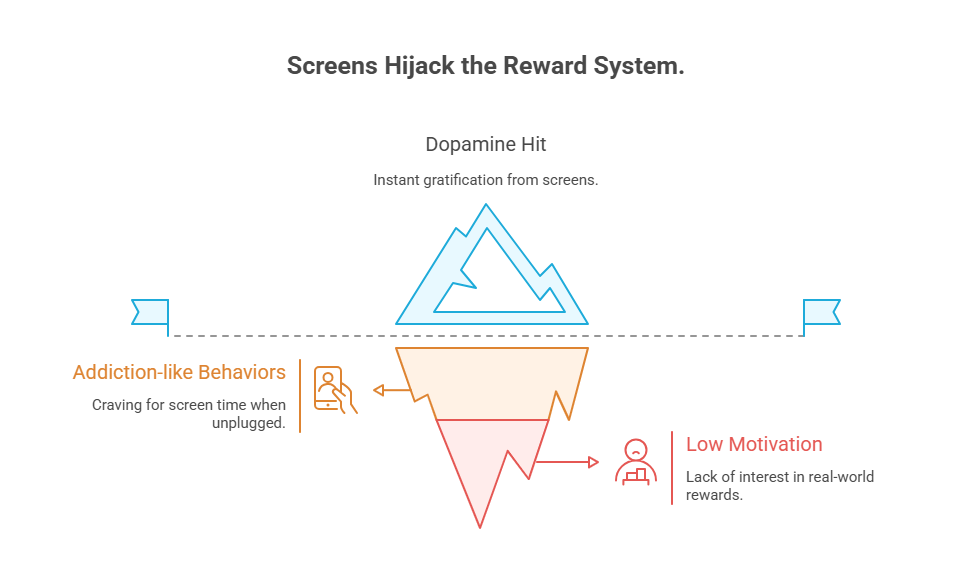
Every ping, pop-up, and animated dancing cat gives your child a dopamine hit—the brain’s “feel-good” chemical.
Over time, this non-stop stimulation can create:
- 🔁 Addiction-like behaviors (moody when unplugged, always “just five more minutes”)
- 😵💫 Low motivation for real-world rewards (homework? Nah. A TikTok challenge? Yes.)
In short: Their brains get used to instant joy—and struggle when life requires patience.
🧩 2. Attention Span: Shrinking Faster Than Their Screen Time
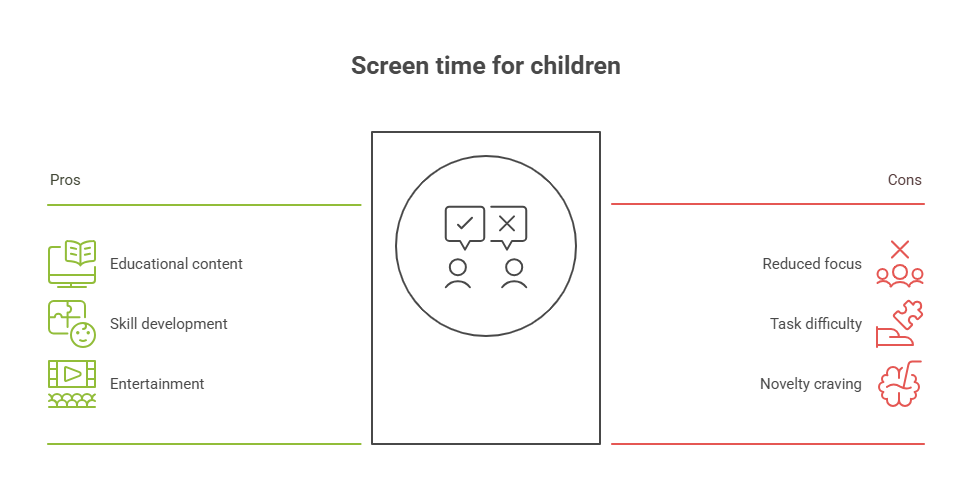
Studies show that too much screen exposure—especially fast-paced content—can reduce a child’s ability to focus.
This can look like:
- ✏️ Trouble sitting through class
- 😮💨 Difficulty finishing tasks without getting bored
- 🧠 A brain that’s trained to scroll, not sustain
Think of it this way: Screens teach the brain to crave constant novelty. Real life? Not so much.
😴 3. Sleep Sabotage: Blue Light, Big Problems
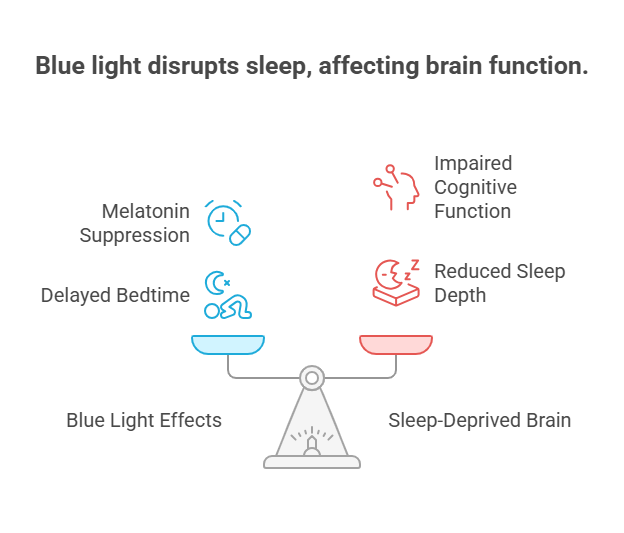
Screens emit blue light, which tricks the brain into thinking it’s still daytime. That means:
- ⏰ Melatonin (the sleep hormone) is suppressed
- 🛌 Bedtime becomes a battle
- 😴 Kids stay up later, sleep less deeply, and wake up groggy
And a sleep-deprived brain? It’s like trying to run a marathon with untied shoelaces. Not ideal.
💬 4. Social Skills on Standby
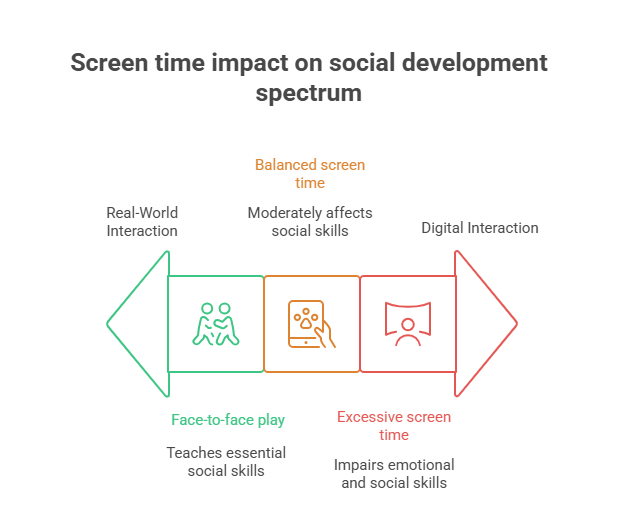
Screens often replace real-world social interactions—which are critical for growing brains.
Too much solo screen time can lead to:
- 🤷♀️ Delays in emotional recognition (like reading facial expressions)
- 😐 Less empathy and poorer communication skills
- 🫣 Increased social anxiety (IRL conversations feel… awkward)
Face-to-face play teaches things no app ever could—like how to share, how to listen, and how not to scream when you lose at Monopoly.
😔 5. Emotional Rollercoasters and Mood Swings
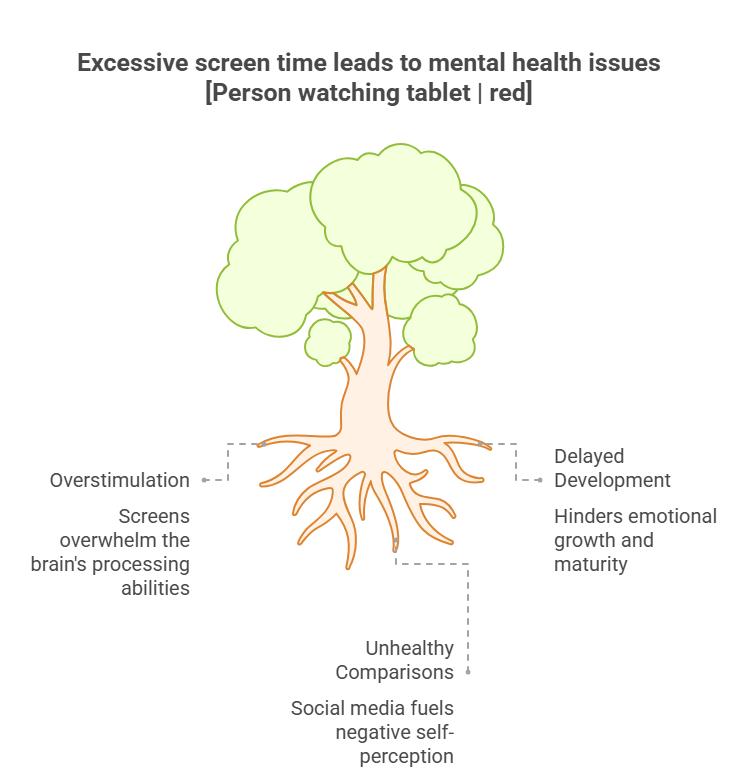
Excessive screen time has been linked to:
- 😤 Increased irritability
- 😞 Higher rates of anxiety and depression
- 😓 Poor self-regulation (AKA meltdown central)
Why? Because screens can overstimulate the brain, delay emotional development, and even promote unhealthy comparisons—especially on social media.
✅ What You Can Do (Without Going Full Amish)
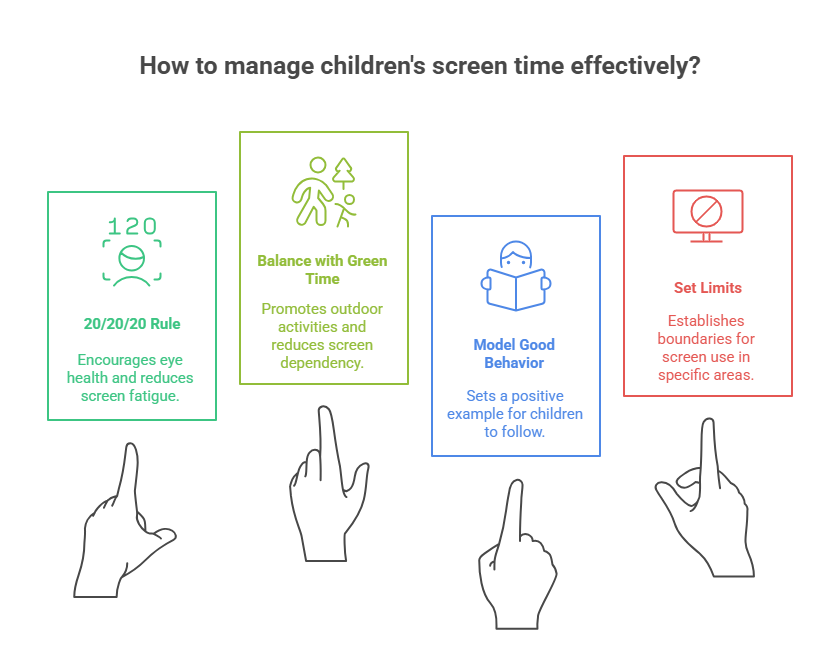
Detoxing your child from screens doesn’t mean throwing your TV off the balcony. It just means being intentional. Here’s how:
- ⏳ Follow the 20/20/20 rule: Every 20 mins of screen time, take a 20-second break to look at something 20 feet away.
- 🎲 Balance with “green time”: More outdoor play, more books, more hands-on fun.
- 🧭 Model good behavior: If you’re scrolling during dinner, they will too. (Ouch, but true.)
- 📵 Set limits: Designate screen-free zones—like bedrooms and mealtimes.
🧠 Final Thoughts: The Brain Is Moldable—So Mold It Well
Here’s the good news: The child’s brain is incredibly plastic—meaning it can change, adapt, and bounce back.
So yes, excessive screen time can harm a developing brain—but healthy habits, loving limits, and real-life experiences can absolutely tip the balance back in your child’s favor.
Because the goal isn’t no screen time—it’s smart screen time.
Your Turn:
Have you noticed changes in your child’s behavior after too much screen time? What screen-time hacks have worked in your home? Drop your thoughts (or your favorite non-screen activity) in the comments below! 👇💬

